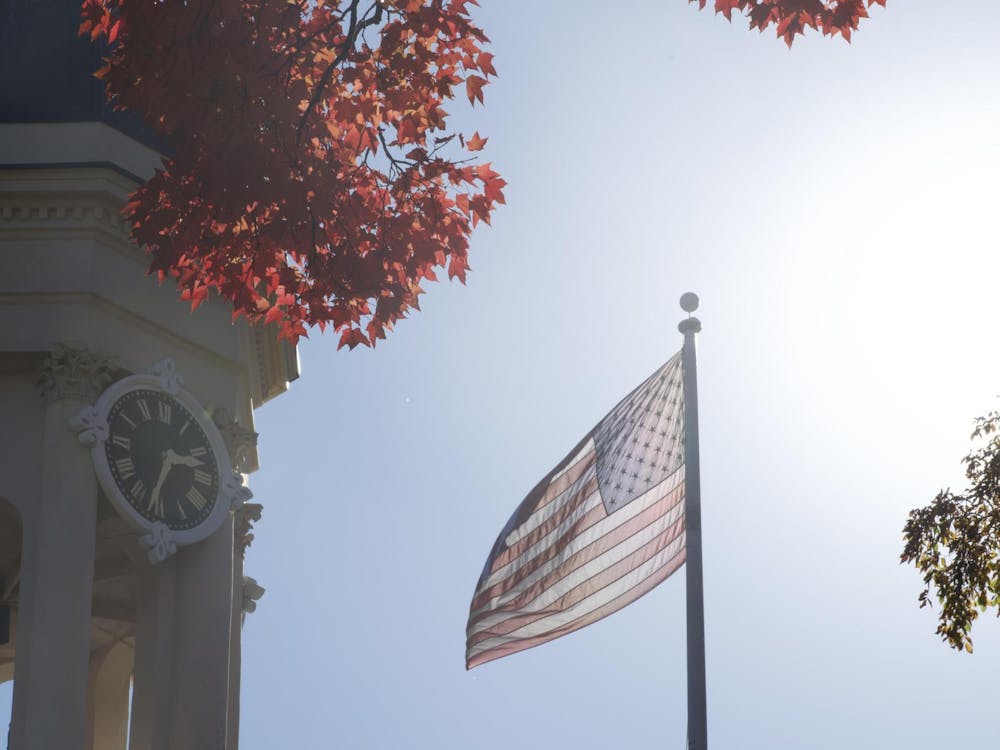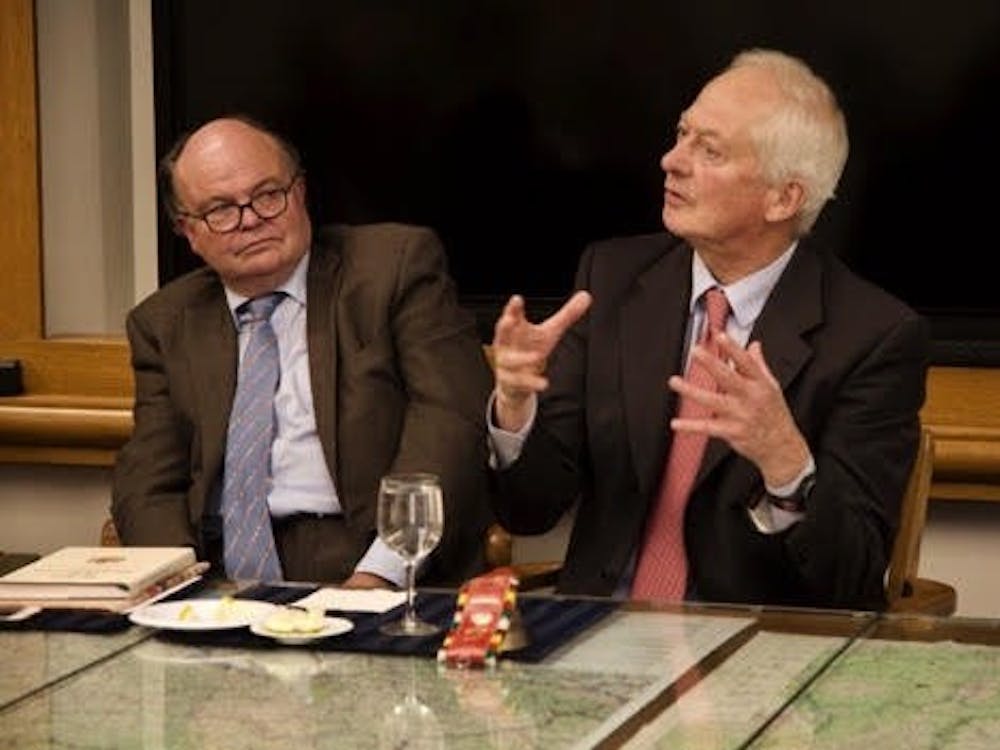In the immediate aftermath of the terrorist attacks against the World Trade Center in New York City and the Pentagon in Washington, D.C., several University professors called the attacks monumental both in scope and emotional impact.
Wilson School professor Frederick Hitz said, "This may be our generation's wake up call," calling the attacks unprecedented in their order of preparation and magnitude. Hitz served as inspector general of the CIA, appointed by President George Bush in 1990.
"This is not the [1993] World Trade Center, Oklahoma City or Columbine," he said. "This was not an amateur operation."
Wilson School professor Michael Danielson likened the attacks to Pearl Harbor and the Kennedy assassination in terms of sheer impact on the American psyche as "a day people will remember."
"I think the world changed for America today," he added.
Wilson School professor Richard Ullman, who has served as a staff member of the National Security Council and on the policy planning staff of the Office of the Secretary of Defense, said he doubted the attacks could have been prevented.
"Hijacking aircraft for use as weapons is totally new. The old-style hijacking was to trade hostages for hostages," Ullman said. "Other types of terrorism might be even more costly, such as attacks on a nuclear power plant or even a nuclear weapon smuggled in and exploded."
"It's obvious the U.S. is a target for terrorism," Ullman added.

Danielson agreed, "The openness of society makes us very vulnerable" to these kind of attacks. It is hard to protect against terrorism and assassination when terrorists are willing to die for their causes, he said.
"It is very difficult to penetrate these organizations," Danielson added, calling it "very impressive" that someone was able to formulate a complex plan, hijack several planes and keep it a secret.
Ullman agreed, "There's no way to defend against this kind of attack."
Hitz said, "I don't think it is going to be possible for America to disengage from the world."

"This doesn't do much for national missile defense," he added.
He also cautioned against rushing to judgement until more details are learned. "We don't know how they got on these planes and we don't know who did it," he said.
Ullman said that while there have been attacks on American embassies and military bases abroad, "the 1993 attack on the World Trade Center is the only other act of terror in the U.S. by foreigners pushing a foreign cause."
The first attack on the World Trade Center in 1993, a car bomb explosion, killed six and caused more than $300 million in damages. In 1995, Sheik Omar Abdel Rahman and nine others were convicted on charges of conspiracy. The alleged mastermind of the bombing, Ramzi Yousef, was convicted in 1998 and sentenced to life with an additional 240 years in prison.
In October 2000, suicide bombers on a small boat rammed into the U.S. destroyer Cole, which was docking at the Yemeni port of Aden, killing 17 sailors aboard.
In August 1998, two car bombs exploded outside the American embassies in Nairobi, Kenya and Dar es Salaam, Tanzania, killing at least 247 in Nairobi and 10 in Dar es Salaam and injuring more than 5,000 people. Twelve Americans were killed in the Kenyan blast.
In June 1996, a fuel truck bomb killed 19 American soldiers stationed at a U.S. military complex in Saudi Arabia and wounded nearly 400 others. In November 1995, a bomb attack on a different military base in Saudi Arabia killed five Americans and two others.
In October 1983, suicide bombers blew up the U.S. and French headquarters in Beirut, killing 241 U.S. Marines and 58 French paratroopers. Earlier that year, in April, the U.S. embassy in Beirut was rocked by a suicide bomb, leaving 63 people dead.







